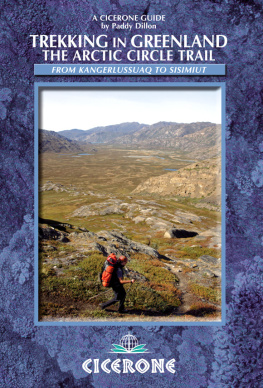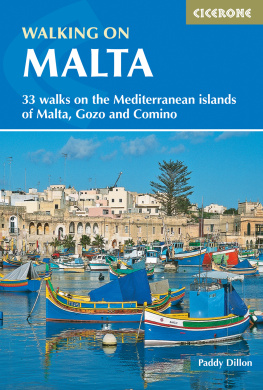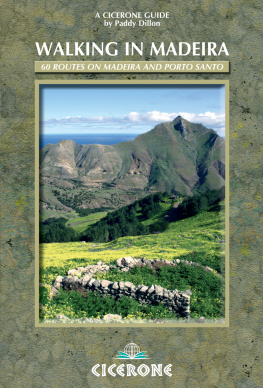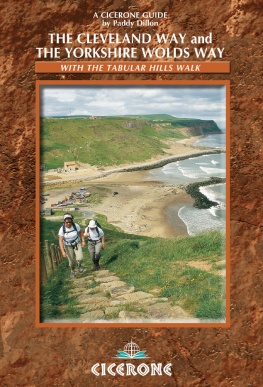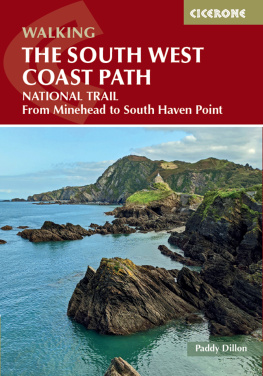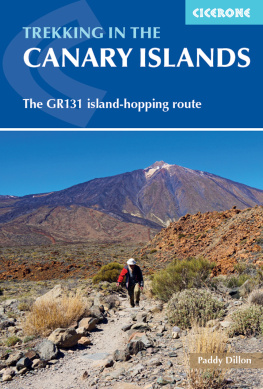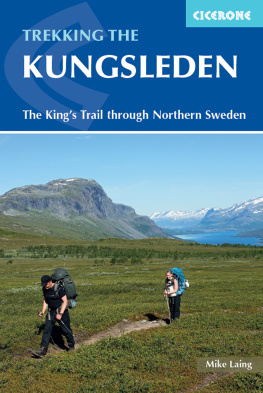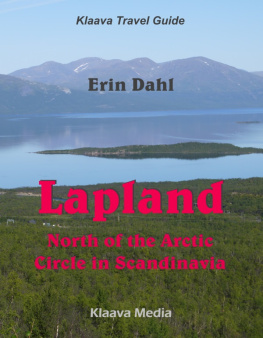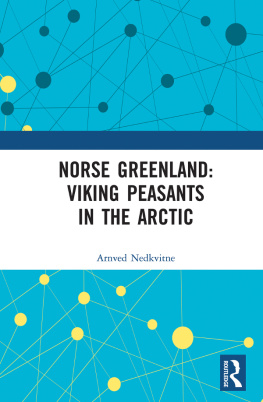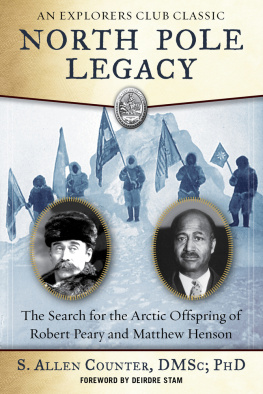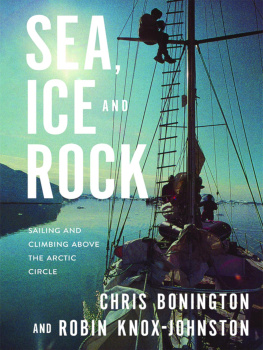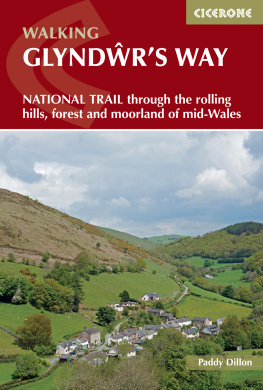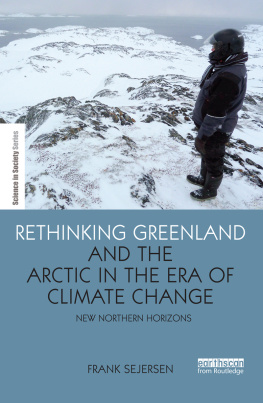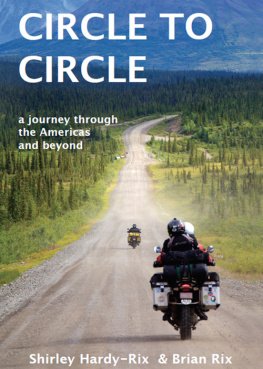About the Author

Paddy Dillon is a prolific walker and guidebook writer, with over 40 books to his name and contributions to 25 other books. He has written extensively for outdoor publications of all kinds and appeared on radio and television.
Paddy has walked the Arctic Circle Trail in both directions, and some parts on several occasions, and he offers splendid extensions to the classic route in this guide. He provides plenty of information and encouragement to others who wish to follow this remarkable trail. Paddy uses a palmtop computer to write his route descriptions while walking. His descriptions are therefore precise, having been written at the very point at which the reader uses them.
Paddy is an indefatigable long-distance walker who has walked all of Britains National Trails and several major European trails. He has led guided walking holidays and has walked throughout Europe, as well as in Nepal, Tibet, the Rocky Mountains of Canada and the US. Paddy is a member of the Outdoor Writers and Photographers Guild.
Other Cicerone guides by the author
GR20: Corsica
Irish Coastal Walks
The Cleveland Way and the Yorkshire Wolds Way
The GR5 Trail
The Great Glen Way
The Irish Coast to Coast Walk
The Mountains of Ireland
The National Trails
The North York Moors
The Pennine Way
The Reivers Way
The South West Coast Path
The Teesdale Way
Trekking through Mallorca
Walking in County Durham
Walking in Madeira
Walking in Mallorca
Walking in Malta
Walking in the Canary Islands: Vol 2 East
Walking in the Isles of Scilly
Walking in the North Pennines
Walking on the Isle of Arran
Walking the Galloway Hills
TREKKING IN GREENLAND
THE ARCTIC CIRCLE TRAIL
by Paddy Dillon

2 POLICE SQUARE, MILNTHORPE, CUMBRIA LA7 7PY
www.cicerone.co.uk
Paddy Dillon 2010
First edition 2010
ISBN: 978 1 85284 624 4
Printed by MCC Graphics, Spain.
A catalogue record for this book is available from the British Library.
All photographs are by the author unless otherwise stated.
All route maps Greenland Tourism and Business Council Inc. Copies of the printed maps from which these extracts are taken are available from Greenland Tourism and Business Council, Postboks 1615, Hans Egedesvej 29, 3900 Nuuk, Tel: (299) 34 28 25, .
Front cover: Descending to Oles Lakseelv in the middle of the Arctic Circle Trail.
Advice to Readers
Readers are advised that, while every effort is made by our authors to ensure the accuracy of our guidebooks as they go to print, changes can occur during the lifetime of a particular edition. Please check this guides page on the Cicerone website ( or by post to Cicerone, 2 Police Square, Milnthorpe LA7 7PY.
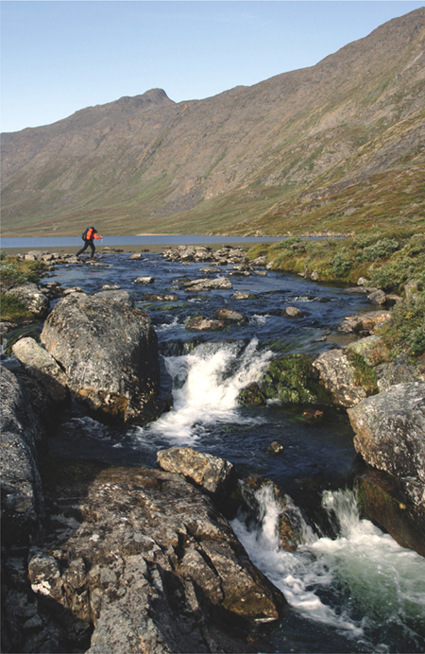
It is best to boulder-hop over the out-flowing river at the start of the day, before it enters a rocky gorge (Day 7)
INTRODUCTION
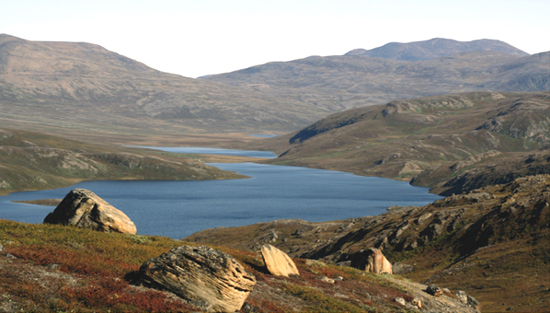
The scenery along the Arctic Circle Trail looks like an uninhabited version of the Scottish Highlands
Greenland is the largest island on Earth, excluding the continental landmasses, with an area of 2,175,600km2 (840,000 square miles). Greenland is also one of the worlds most inhospitable and sparsely populated places, with an ice cap occupying 85 per cent of the landmass, leaving only a narrow coastal strip ice-free during the summer. The bulk of Greenland lies north of the Arctic Circle the line of latitude 66 33 39. In high summer this is the Land of the Midnight Sun, but in the deepest midwinter there is no sun at all, just the eerie flickering of the northern lights.
Greenland is a harsh environment, where every type of life has had to adapt to survive the long and bitterly cold winter. It is also a fascinating place to explore, especially on foot in remote places, and in the summer months it can be surprisingly easy. Geographically, Greenland is part of the North American continent, but politically it is tied to Denmark and Europe. The country was granted home-rule status as recently as 21 June 2009.
The Arctic Circle Trail is a splendid trekking route that fits neatly into one of the largest ice-free areas of West Greenland, lying 4050km (2530 miles) north of the Arctic Circle. The trail runs 165km (102 miles) between Kangerlussuaq and Sisimiut, and the total ascent/descent along the route is surprisingly low, at 3315m (10,875ft). Walkers usually take 710 days to complete the route.
Only around 300 people per year walk the trail, but they come from all over Europe and North America. They are usually experienced backpackers, but this is often their first experience of walking in Greenland. Access to the trail is easy, and the walk can commence immediately from the international airport at Kangerlussuaq. Although Greenland has the reputation of being an expensive place to travel, the Arctic Circle Trail is completely free of charge. The trail is equipped with a series of basic huts, for which there is no charge, and it costs nothing to pitch a tent in the wilds. At one point there is the option of paddling a canoe along a lake again free of charge. Some walkers even fish or gather berries along the trail to supplement their rations!
Well-prepared walkers, who take care to pack lightweight and efficient gear, will doubtless rank the Arctic Circle Trail as one of the classic walks of the world. There is an incredible sense of space and silence from start to finish, and, if blessed with sunny and stable weather, few walkers would wish to be anywhere else. It is essentially a summer route, and this guidebook describes the trail during the brief summer months (June to September), when the tundra is vibrant with new life. The dark Arctic winter, with its sub-zero temperatures, is of course a completely different experience!
GEOLOGY
Greenland is part of the Laurentian Shield. This is a vast area of ancient rock, among the oldest exposed rock in the world, stretching across much of North America. Whatever its original structure, it has been altered beyond recognition during the course of its existence as it was crushed under incredible pressures, causing it to melt and re-crystallise over and over again. Vast areas of rock were torn apart, crumpled together and intruded by a variety of igneous rocks and mineral veins. Unravelling the long and complex history of Greenlands geology is time-consuming, but geological study is made much simpler because so much of the bedrock is buried out of sight (and hence out of mind) beneath the ice cap, or beneath glacial drift and blanket bog.
In the region of the Arctic Circle Trail the bedrock is broadly described as being Palaeoprotozoic (2500 to 1600 million years old) and Archaean (as much as 3800 million years old). During that distant epoch the Earths atmosphere was high in methane and ammonia. The earliest life forms were stromatolites, anaerobic cyanobacteria which very slowly enriched the oxygen content of the air, making it possible for more complex life forms to evolve.

